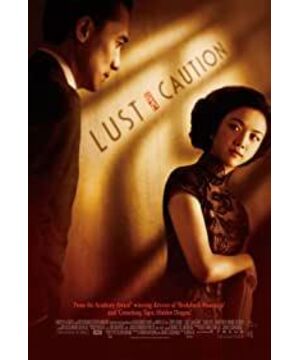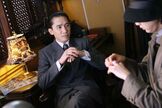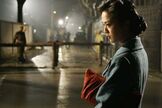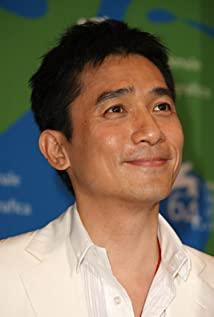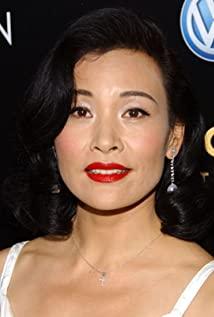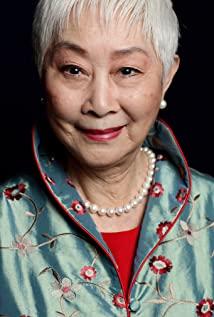Wang Jiazhi's fate is not only the interweaving of love and hate, but also the contradiction between love and mission, between the individual and the country. This obvious contradiction does not need to be brought to the table. What Ang Li focuses on is the inner feelings of Wang Jiazhi. isolated. She became a female agent because she "wanted to be with everyone", and was rejected and isolated by her classmates and friends because of this status. Rouge, diamond ring, perfume, cheongsam, these precious things can increase Wang Jiazhi's sense of loss because they are only acting props.
There are two very important scenes about this isolation of Ang Lee.
1. Wang Jiazhi walked in the set on the stage, seemingly immersed, confused, and in a trance. As a result, he was awakened by Kuang Yumin's loud shout. "Wang Jiazhi!" This voice shouted so well, she turned around and saw a group of people gathered in the audience from a distance. The small group that once made him feel free, warm and gracious.
But the spatial relationship in this scene and Kwong Yumin's voice have already completed this sense of isolation. And this spatial relationship also forms a hint for the character relationship that will be developed below. She was acting alone, and the others just stared coldly.
2. The mansion killed Cao. Mr. Yi moved out of Hong Kong, but his plan failed. A group of people were busy cleaning up the mess in the apartment, but Wang Jiazhi was sitting in the middle of the living room, still dressed as a rich wife. Afterwards, a fight between a group of people and Lao Cao smashed the glass on the door and brought out the fearful, regretful, isolated, and pitiful Wang Jiazhi on the balcony. The spatial relationship in this scene is more direct, with a layer of broken glass separating her from them. The scene as the end of this paragraph is really complicated.
In the film, Wang Jiazhi's family is also briefly explained. The lack of family affection makes her cherish the friendship of the drama club very much; but when she accepted the assassination mission, she was abandoned by the things she originally cherished. Kwong Yumin's indifference and abandonment made her hate. And she still wants to continue acting three years later, carefully entangled in the social circles of Mr. Yi and Mrs. Yi, and being in this false relationship for a long time has made her mind completely isolated.
3. After the incident came to light, Wang Jiazhi took a ride on the street and ran from one side of the road to the other, very helpless. The last rickshaw turned a corner and stopped in front of her. The driver turned back and smiled at her, and asked "go home". Wang Jiazhi replied in a trance, "Ai". The coachman stepped up and down quickly, and the windmill on the handlebar turned in the wind.
This young, handsome, healthy and energetic coachman is actually Wang Jiazhi's last fantasy of this world before Lin Xing. The image of this coachman created by Ang Lee concentrates her last and only attachment and tenderness to this world. The windmill symbolizes the innocence and beauty of childhood; the close-up of the broad back of the driver is actually a sexual metaphor; and the rickshaw driver plays the role of a rescuer in this scene, to send her "home", which is Wang Jiazhi, a poor woman in troubled times, needs the most powerful and tender male image who can stand up in times of crisis and can be relied on by her. And who is the prototype of this perfect male image in reality? It is Mr. Yi. The rickshaw driver looked back and asked for a close-up of the side when he came home. The same viewpoint was used many times when shooting Mr. Yi in the film. The overlapping of these images is clearly enough to illustrate Wang Jiazhi's love for Mr. Yi.
A song "The End of the World" sings Wang Jiazhi's inner world. A poor beauty is isolated in this world. The beauty of Wang Jiazhi's personal tragedy is the soul of "Lust, Caution". Tang Wei with high red lips + Zhang Ailing in troubled Shanghai + Ang Lee with humanistic feelings = the most beautiful female image in the history of Chinese movies.
View more about Lust, Caution reviews


